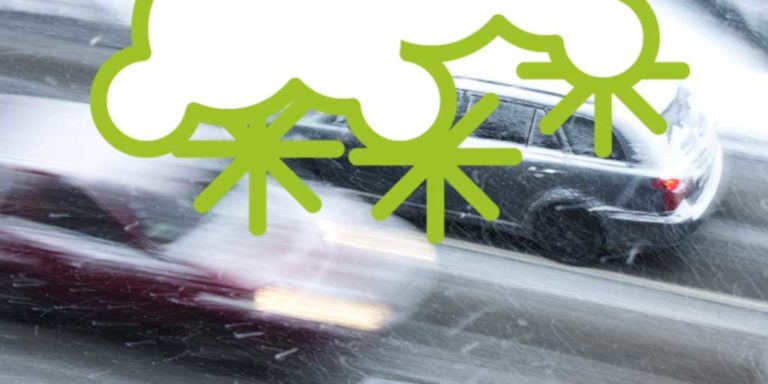Texans in regions that don’t normally see ice and snow may not be as familiar with driving in these weather conditions when they occur. Unfortunately, being unprepared for this type of weather is how many of these accidents happen. For this reason, it is important for all Texans to know how to drive in inclement winter weather conditions.
Do not get caught unprepared trying to navigate your way home on icy or snowy roads in sudden bad weather. Prepare yourself and your car for winter weather before ice and snow storms happen. To help winter drivers, the Occupational Safety & Health Administration (OSHA) has devised a plan for safe winter driving. OSHA’s advice is to follow “The Three P’s of Safe Winter Driving” and reduce your chance of being involved in a fatal crash this winter.
The Three P’s of Safe Winter Driving:
1. Prepare for the Trip.
Maintenance: All vehicles require regular maintenance for their optimum performance. You need to maintain your car to drive in any type of weather, especially bad winter weather. Regularly check your battery life on your vehicle and the tread on your tires to make sure they are not worn. Have you recently checked your fluids? It is also important to ensure that your vehicle has plenty of windshield wiper “no-freeze” fluid as well as antifreeze for the radiator.
Emergency Kit: It is a good idea to always have a stocked emergency kit in your vehicle. This could include a flashlight, jumper cables, shovel, something to clear your windows (snow brush and/or ice scraper), warning devices (like flares or traffic cones), warm blankets, and even abrasive materials that can help your vehicle get traction if you get stuck (sand, kitty litter, even floor mats and rugs). If you are going on a long trip, you may want to consider having food, water, and medication (first aid kit). Also, a cell phone is always good item to carry with you wherever you go.
Plan Your Route: Check the weather before you hit the road. Don’t rush, and allow yourself plenty of time to arrive at your destination. You may want to even consider leaving earlier than normal to allow yourself more time. Make sure you are familiar with the maps and directions to your destination. It is also a good idea to let someone know your route and your estimated time of arrival.
Practice Driving in Winter Weather: Get accustomed to driving in winter weather during daylight hours. If you are able, try maneuvers at a very slow speed in an icy or snowy empty lot. Practice recovering from slow speed skids in order to prepare yourself for skidding on black ice.
2. Protect Yourself and Others.
Always Buckle up: If you have children, use properly installed child safety seats that are appropriate for the children’s ages. Remember, children under 12 are much safer in the back seat of your vehicle, and Texas has many statutes requiring the use of safety restraints for children of certain ages.
3. Prevent Crashes on the Road.
Don’t Drive Distracted: Never drive under the influence of drugs. If you plan on drinking, plan on a designated driver. Don’t text or play with your cell phone while driving. If you need it for directions, make sure it is mounted on your vehicle and the route is pulled up before you hit the road.
Drive Safely: In winter weather you should never speed. In fact, you should probably drive slower than the speed limit but not so slow that you impede traffic. Always increase your following distances between cars.
Keep Your Eyes on the Road: You should always be aware of your surroundings. Watch out for pedestrians walking along the road (it is harder to see people in bad weather conditions). Also, be prepared to drive defensively. Always be aware of other drivers that may not know how to drive in wintery weather.
Avoid Driving Fatigued: Make sure you are well-rested. This is especially important prior to a long trip. If you know that you will be on the road for a while, stop and rest every three hours. If possible, rotate drivers.
For additional winter weather driving tips, visit FEMA.gov. If you or one of your loved ones are involved in a serious car accident, call the personal injury attorneys at the Kuzmich Law Firm P.C. as soon as possible.
Steve Kuzmich is a Board Certified – Personal Injury Trial Lawyer by the Texas Board of Legal Specialization. The Kuzmich Law Firms’ focus practice areas are auto and trucking accidents, wrongful death and other serious injuries, injuries caused by drunk drivers, child injury cases, (slip and fall accidents) premises liability, and dog bite cases.
For further information about personal injury litigation, call as at 972.434.1555 and ask us why board certification matters.
